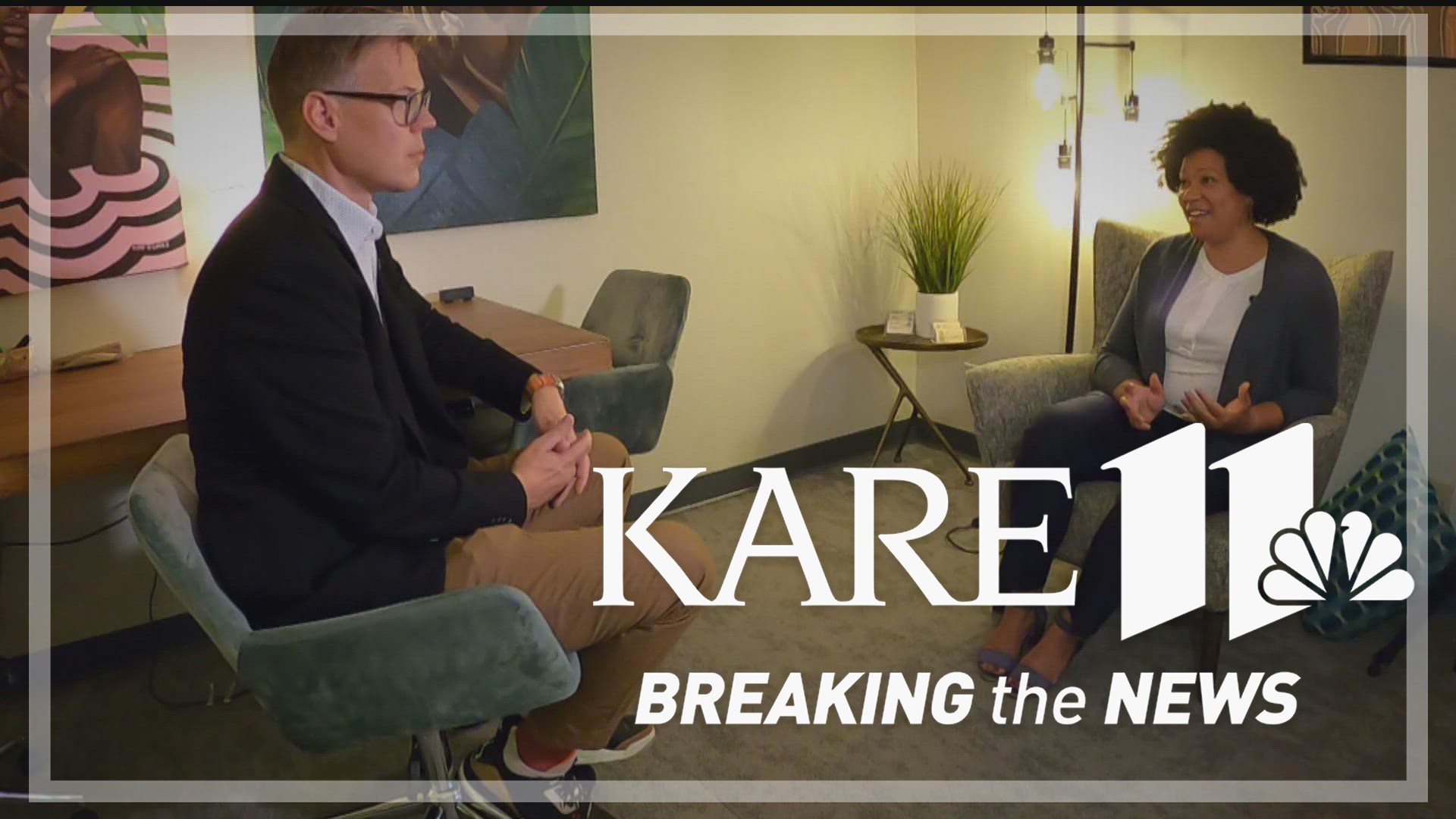MINNEAPOLIS — For the past nine months, two white vans carrying Minneapolis Behavioral Crisis Response (BCR) teams, have quietly answered a lot of calls and addressed a lot of misconceptions.
"A big misconception is that, first, there is a crisis line. That does not exist. It's just 911." said Candace Hanson, program manager for Canopy Mental Health & Consulting, which provides the unarmed mental health professionals who answer those calls. "The dispatch staff are really great at kind of sorting through the calls and figuring out what's appropriate to send to who."
Hanson says another misconception, magnified in the wake of George Floyd's murder, even among MPD officers, was that the mental health teams were an effort to defund or replace police.
Hanson: "I think the challenge was just, in the very beginning, before anyone knew what the work was actually going to look like on a day-to-day basis, and I think all of that honestly changed the day we started functioning and taking calls. Immediately, we would get officers just thanking us for the work, thanking us for taking over in a situation where they're like, 'I've got to get to the next call.'"
Erdahl: "You mention that police have called in teams. Have teams called on police at times?"
Hanson: "Yes."
Erdahl: "And that's when situations could get unsafe?"
Hanson: "Yeah, and also there are some situations where we are required to call police, so for instance if there is a firearm produced, we have to (call in police) even if we think the firearm may not be used."
Erdahl: "In those cases, do those responders, do those teams, stay on scene?"
Candace: "Yes."
If you're looking for a way to measure that level of cooperation, you can begin with a singular safety statistic. There were zero injuries in the first six months.
"That's what I spend all my time thinking about, is safety," Hanson said. "One of the main things we think that supports our team in staying safe is they follow protocol. They keep their distance from people, they treat them with respect, they have the stance of a crisis responder."
It's not as if those protocols haven't been tested. The teams responded to more than 3,300 calls in the first six months.
Hanson: "It could have been even more. We do get more calls than we can take."
Erdahl: "What does that tell you about the need that's out there?"
Hanson: "I mean, obviously, I think the need is huge. One of the main things that we get from dispatch, from folks at MPD, from folks in the community, is when are you going to have more vans? When are you going to have more responders?"
Brian Smith, director of the Office of Performance and & Innovation, says help is on the way. He says one additional van will be added in 2023, and further expansion is possible.
"There's enough data right now to suggest, and this came from MPD and 911, that there are enough calls for service that we could use one van per precinct now," He said.
For now, he says the priority is finding, and training, staff to fill Saturday and Sunday overnight positions.
"We should be able to be at a full 24/7 with those two overnight shifts on the weekends fairly quickly," Smith said.
Erdahl: "To have that support from 911, from the city, but from police as well... what does that tell you?"
Hanson: "We have the same goals. Which is health and safety of the community. Even if we're disagreeing, even if we have completely different perspectives and methods, right, that we do have that shared goal."
RELATED: Anonymous donor gives $3 million to help local nonprofit address youth mental health crisis
Watch more Breaking The News:
Watch all of the latest stories from Breaking The News in our YouTube playlist:

